Explore Outer Space: Fun and Educational Printable Worksheets for Kids Aged 5-6 | Kids Academy
6 filtered results
-
From - To
Embark on an interstellar adventure with our "Space for Ages 5-6" worksheets, designed to captivate the imagination of young astronauts-in-training. These engaging worksheets are tailored specifically for 5 to 6-year-olds, introducing them to the wonders of the cosmos through a series of fun, interactive activities. From exploring the planets of our solar system to understanding the phases of the moon, these sheets are perfect for sparking curiosity and nurturing a love for space exploration. With vibrant illustrations and age-appropriate challenges, our Space worksheets are the ideal educational tool to launch little learners on an exciting journey through the universe!
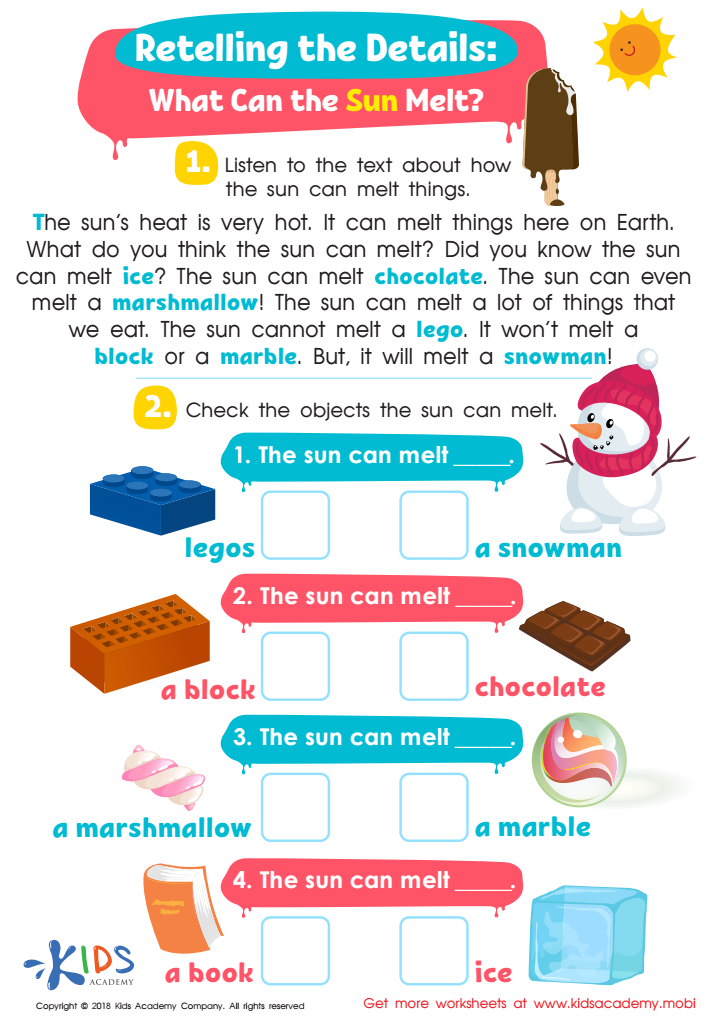

Retelling the Details: What Can the Sun Melt? Worksheet
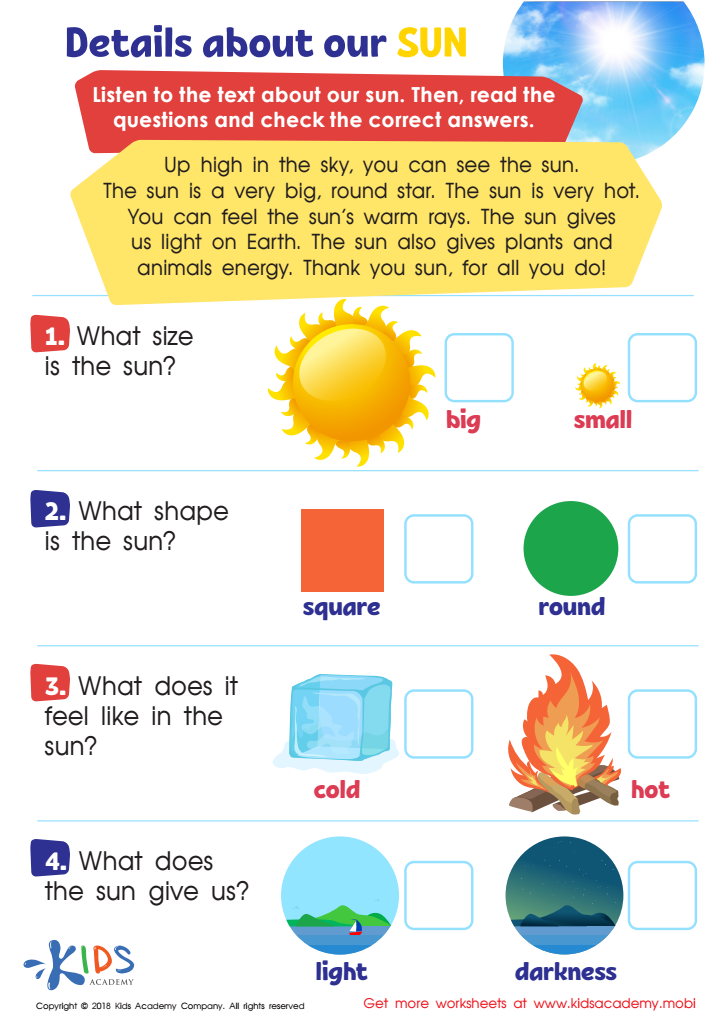

Details About Our Sun Worksheet


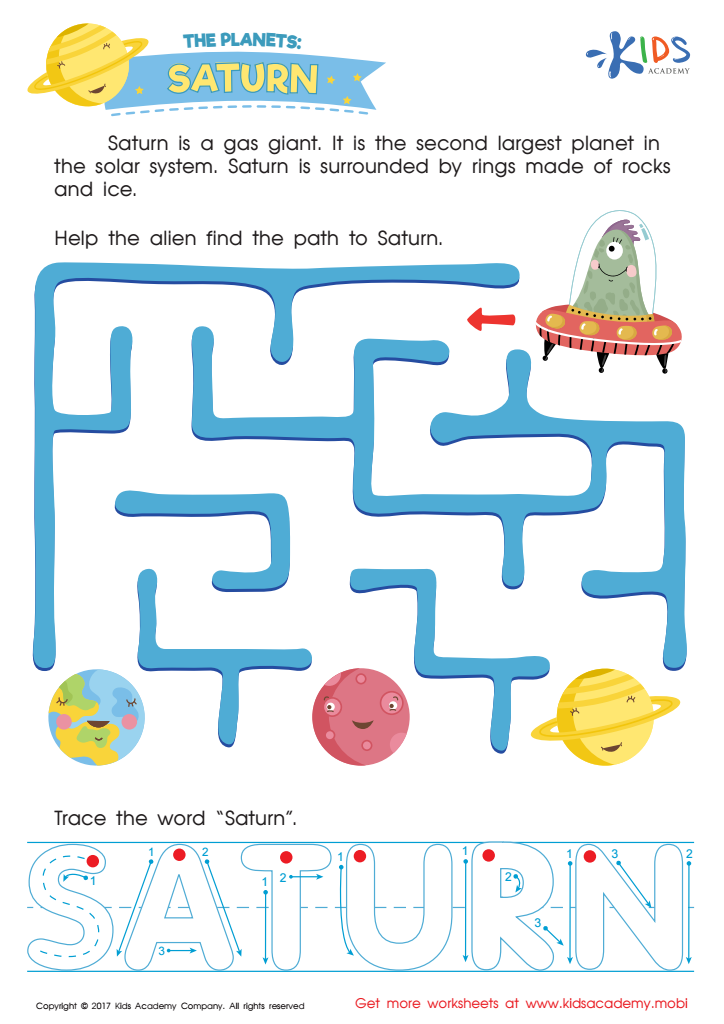

The Planets: Saturn Printable
Worksheets on Space for Ages 5-6 are an invaluable learning tool that spark curiosity and ignite a lifelong passion for the cosmos in young learners. At this pivotal age, children are naturally curious about the world around them, and space, with its stars, planets, and infinite mysteries, is particularly fascinating. These worksheets serve as a gateway to the universe, tailored to suit their developmental needs and understanding.
Introducing space concepts through these specially designed worksheets helps children in this age group grasp basic astronomical concepts, such as the names of planets, the concept of gravity, and the importance of the Sun, in a fun and engaging way. The use of colorful imagery, puzzles, and simple experiments on these worksheets enhances their learning experience, making complex ideas more accessible and enjoyable.
Moreover, Space for Ages 5-6 worksheets fosters critical thinking and problem-solving skills. As children navigate through the activities, they learn to ask questions, seek answers, and understand their place in the vast universe. This not only enriches their knowledge but also encourages a healthy sense of wonder and exploration.
In essence, Space for Ages 5-6 worksheets are more than just educational tools; they are a launchpad for young minds, setting the foundation for future scientific inquiry and a lifelong appreciation of the natural world.

 Assign to My Students
Assign to My Students
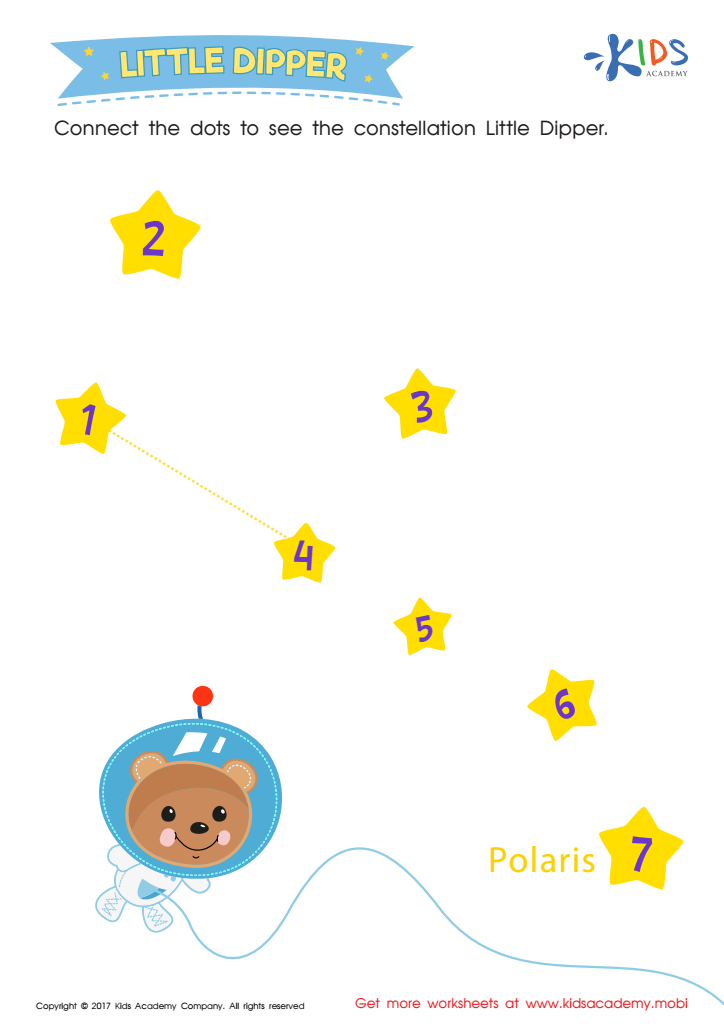
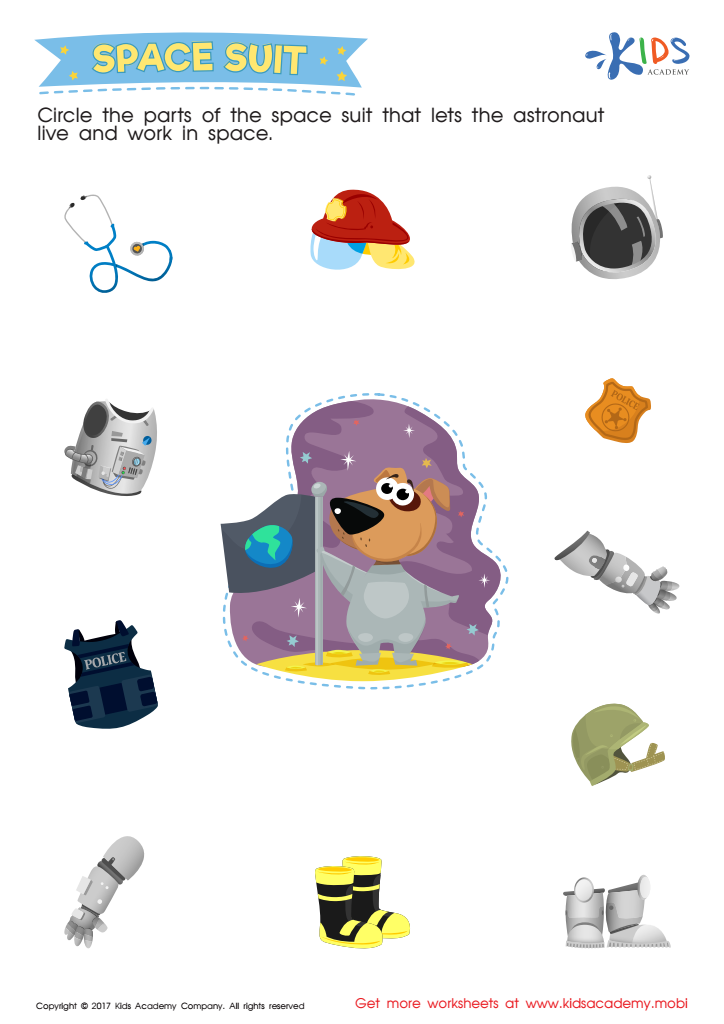


.jpg)












